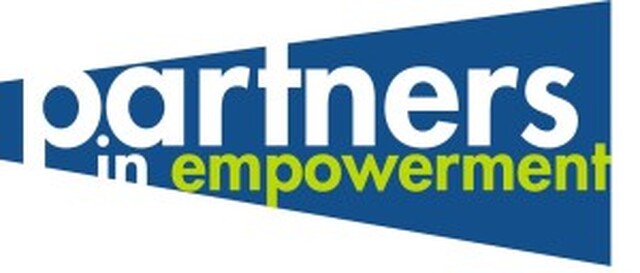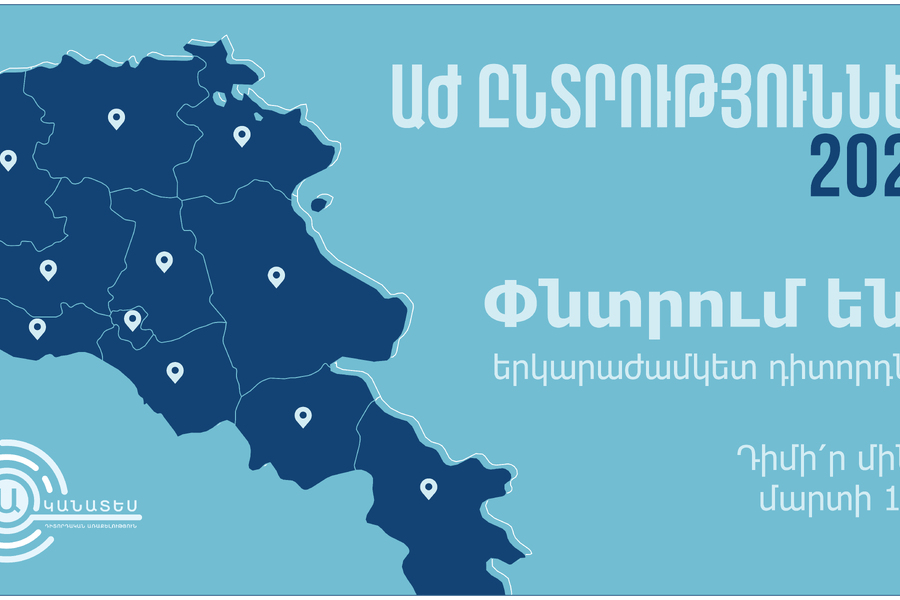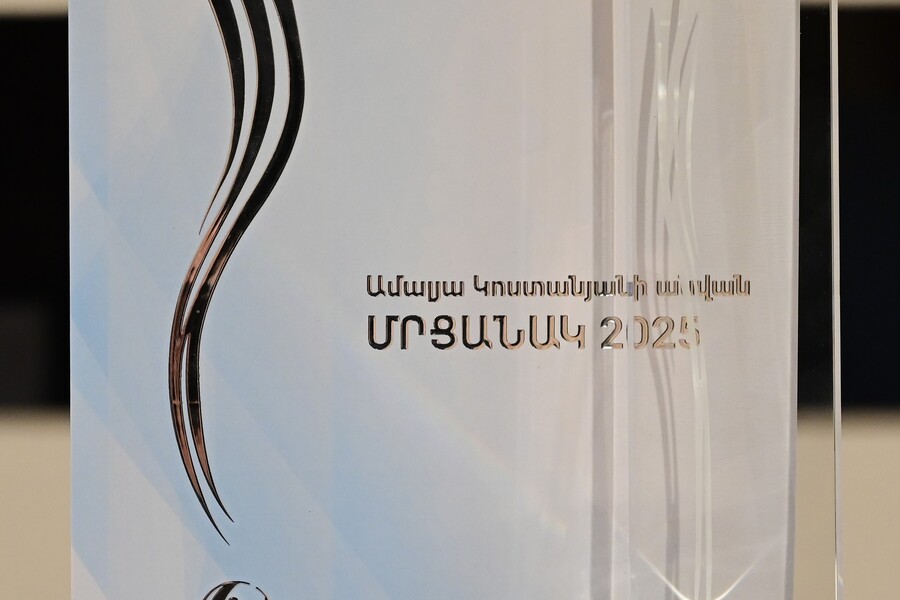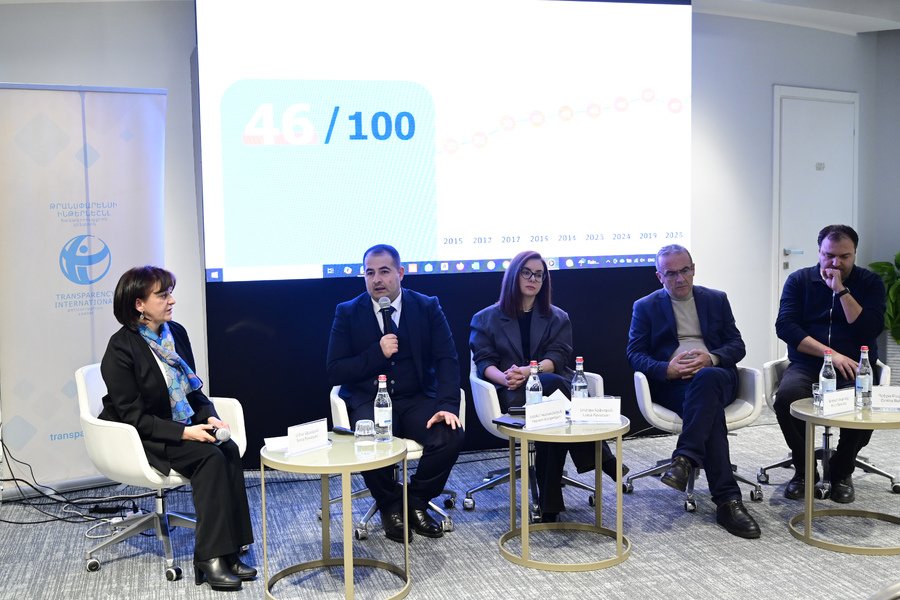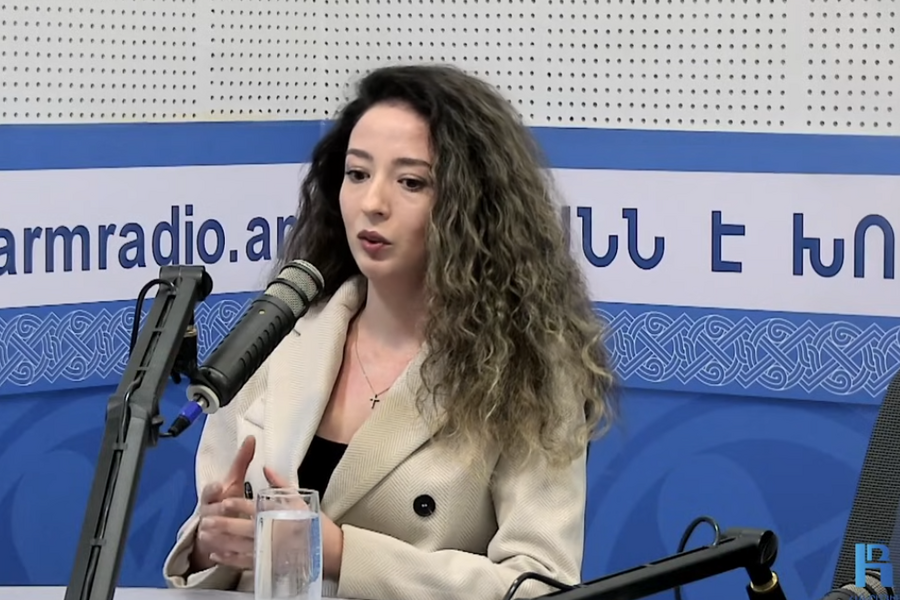Partners in Empowerment awards grants to 8 NGOs in Eastern Partner countries
March 2, 2016
Eight NGOs have been selected to receive grants from Powers in Empowerment, an EU-funded PASOS program to improve the ability of civil society to monitor policymaking and public services in three Eastern Partnership countries.
The NGOs were chosen in a competitive process after a public call to submit proposals to a expert selection committee.
“The programs that the Partners in Empowerment grants are supporting will foster stronger, interconnected CSOs and CSO leaders in Armenia, Moldova, and Ukraine, teaching them how to work together and to draw on peer and international expertise to hold governments to account by becoming effective watchdogs engaged in the policymaking process and in leveraging expertise to monitor public service delivery and government decisions,” said PASOS Executive Director Vita Terauda.
“By doing so, they are improving the structures for CSO-government dialogue and enhancing capacities for civil society to engage in the policy cycle and to influence policymaking, and increasing public accountability and effective policymaking towards sustainable development.”
The grantees are as follows:
Grantee: Center for Regional Development and Research
Project: Corruption risks in the field of public procurement of medicines in medical institutions of Armenia
The aim of the project is to improve Armenian healthcare services by targeting areas of potential corruption within the system. Project activities include monitoring and evaluation of public procurements in healthcare facilities. The Center will create a network of like-minded NGOs in the regions of Gegharkunik, Lori, Vaёts Dzor, and Tavush. The coalition will work on creating links between these communities and healthcare workers. In addition, doctors and patients will be surveyed and interviewed. The Center anticipates that the project will put pressure on regional governments to implement more monitoring of public spending. A public-information campaign also is expected to raise awareness among healthcare stakeholders about the issues and findings raised by the project.
Grantee: Dnipropetrovsk Coordination-Expert Center for Regulatory Policy
Project: Prevention of corruption in the transport sector in 22 regional centers of Ukraine
This project targets Ukraine’s intercity transportation system, said to be one of the most corrupt public sectors in the country. The project will develop informational resources which will allow civil society and the media to monitor and evaluate local government spending on transport in 22 regional centers of Ukraine. This areas targeted for analysis include: regional and local programs of electric transport and road transport, subways, competitive conditions of carriers, measurement of passenger traffic, the calculation of costs, and the results of competitive selections. Project activities include the creation of an Internet portal compiling procurement results and other statistics. The Center will produce an analysis of development of 22 local programs for electricity and vehicles, an analysis of compliance with regulations, and generate recommendations to reduce corruption. A coalition of anti-corruption NGOs will be launched to sustain work on the problem. The Center expects that the project will improve functioning of the transport system, identify unfair activities, and bring corrupt officials to justice. Long-term goals include the reduction of corruption in the public transport sector, eliminate the cash payment system on toll roads, initiate the development of an urban electric network, and increase protection of the rights of consumers of transport services.
Grantee: Ecological Safety Ensuring and Democracy Development
Project: Compatibility of mining activity in the Syunik region of Armenia with the legal and environmental standards of Specially Protected Areas of Nature established in the Syunik region
The government of Armenia has failed to provide the public with information about how it is spending European Union funds on nature preserves, and this project seeks to redress that situation. The aim of the project is to monitor spending on the Specially Protected Areas of Nature (SPANs) in the Syunik region of Armenia, and to determine if the government is operating the SPANs according to environmental standards. Project activities include requesting reports from official bodies and donor organizations; establishing active cooperation with the media; development of booklets and electronic maps; public meetings involving the local community, mining companies, civil society actors, and international organizations. Project organizers expect to hold the government accountable for possible violations of its oversight, and provide impetus for policy changes and legal reforms. In addition, the project will ecourage public participation in the decision-making process, and provide access to local budget information.
Grantee: Expert-Grup
Project: Transforming Chisinau into a better place for living
This Expert-Grup projects targets corruption, blamed for the disappearance of public monies, in Moldova’s capital city. Project organizers are focusing on Chisinau’s streets department. Project activities include monitoring how public officials award contracts for maintenance and repair of the city’s streets. This will be followed by a public-information campaign highlighting the results of the monitoring. The project aims to transform Chisinau Municipality by making its public procurements transparent. Expert-Grup expects to work closely with the Chisinau Municipality Council; the Mayoralty of Chisinau; the state Chancellery; the Ministry of Transportation; and the Public Procurement Agency.
Grantee: Public Association Agency for Regional Development (PARD) ‘’HABITAT’’
Project: In villages MAT and service quality
This project seeks to employ MAT (Monitoring, Anti-Corruption, and Transparency) in order to increase public participation in policymaking in four Moldovan villages plagued by poor quality drinking water. The three areas which will be monitored by the project are water quality/environmental standards, public procurement of water supplies, and transparency of local decisions. The project also includes plans for advocacy and information campaigns. The organization is partnering with a regional newspaper to increase public awareness of how the water systems operate in the targeted towns. The project is expected raise awareness that citizen participation is important for local governance and development, and that corruption should not be tolerated.
Grantee: Institute of Analysts and Advocacy
Project: Monitoring of administrative services by local authorities in Poltava and Lutsk
The purpose of this project is to enhance the quality and efficiency of two Ukrainian cities through the creation and implementation of electronic administrative services systems. Project activities include monitoring and analyzing the current services, and working with authorities to develop and deploy electronic systems. Local officials also will be offered training. The project will help guarantee citizen access to information and is expected to reduce corruption as a result of increased transparency of government activities. In addition, it is expected to save the public time, money by eliminate bureaucratic procedures.
Grantee: Association for the Promotion of Self-Organization of the Population
Project: The local budget – With people and for people
The aim of the project is to develop a model which would improve the transparency and efficiency of the execution and formation of local budgets in the Odessa region of Ukraine, by increasing public participation in those processes. Project activities include creation of budget coordination councils, which consists of representatives of local authorities, businesses, associations and public organizations; monitoring the formation and execution of local budgets; monitoring budget allocation over the past 3 years, to develop recommendations for public and local authorities; conducting public discussions of the results with the participation of representatives of local authorities and businesses, public and media; and organization of two workshops in Odessa for the representatives of local authorities and public activists. Organizers also plan to presenting proposal to city council budget draft regulations; use online tools for budget publications; identify current urban issues which can be solve at the expense of local budgets; organize online applications where the public can send budget suggestions; conduct public hearings in pilot cities on drafting budgets; and promote inclusion of proposals in draft budgets on the basis of fiscal regulations. The project will generate a model for public participation that can be used in other small towns and villages of Ukraine. Long-term results include increased trust between authorities and citizens, and increased public awareness of how to be more involved in local budgetary processes, increasing the ability of citizens to analyse priorities and enhance community development.
Grantee: Institute for Development and Social Initiatives (IDIS) ‘’Viitorul’’
Project name: Building Transparent and sustainable public procurement system through efficient and permanent monitoring process
This IDIS “Viitorul” project seeks to reduce corruption in Moldova’s Public Procurement Agency by means of an extensive monitoring program. The monitoring will look at procedures in the public contract award process, transparency in the agency, complaints from businesses about the agency, and the efficacy of the public e-procurement system. Other activities include workshops and training for civil society and officials.
Partners in Empowerment, which started in January 2015, is being funded by the EU’s European Neighbourhood and Partnership Instrument (ENPI). In addition to the grant program, other project activities include workshops, training seminars, online learning, and coalition building.
See Call for Grant Applications on TIAC's website.


